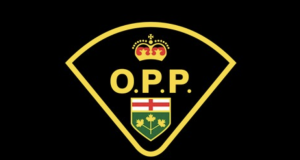Sol Mamakwa, the MPP for Kiiwetinoong and critic for Indigenous Affairs and Reconciliation, and Guy Bourgouin, the MPP for Mushkegowuk-James Bay, said that Kashechewan First Nation is facing a dire situation due to the arrival of the spring flood season, and is calling on the government to step in, in light of the COVID-19 pandemic, and help Kashechewan move to final Site 5 relocation spot, so they don’t need to evacuate to communities already-strained by COVID-19.
“The flood season, which often, sadly, means evacuation for Kashechewan residents, is about to begin. But this time, Chief and Council’s options are limited. Towns that have welcomed Kashechewan evacuees in the past, like Kapuskasing, Timmins, Cochrane and Cornwall, are on the front lines of the COVID-19 epidemic and concentrating on their local preparedness – and rightly so,” said Bourgouin.
Kashechewan First Nation sits on low grounds on the north shore of the Albany River, in the James Bay area. Spring flooding has forced the 2,500-strong community to evacuate 17 times in the past three decades. As snow melts and ice from upstream begins to break and move toward the James Bay, water levels rise causing re-occurring spring flooding.
“This leaves Kashechewan with little, if any, wiggle room,” said Mamakwa. “They can either stay on reserve until the ice and the waters break through the dike or they can evacuate to Site 5, the high-grounds area that has been chosen by the community for the final relocation of the reserve as signed with Ontario and Canada in May 2019, Mamakwa said.
Almost two weeks ago, the Federal Minister of Indigenous Services promised to deploy specialized tents and medical equipment to areas, such as Kashechewan, that lack the space and the resources to cope with the pandemic. But Mamakwa said the provincial government has a role to play, too.
“The government made a financial commitment to First Nations that, while still insufficient, needs to come through. And Canada’s deployment of a tent camp at Site 5 requires the direct help and approval of Ontario, as previously requested by the leadership of Kashechewan, as the land is still under provincial Crown jurisdiction. As signatories of Treaty 9, both Ontario and the federal government have responsibilities toward the First Nations of the James Bay. This is the time to act.”
“Action speaks louder than words. It is time to stop making promises and get boots on the ground, right now.”
- Tenaris Commits an additional $78,500 to Support HSCDSB STEAM Lab Programming - February 21, 2026
- Safety Reminder: Keep Children Off Snowbanks Near Power Lines - February 21, 2026
- Une élève de Wawa exerce son leadership au Sénat des élèves du CSC Nouvelon - February 20, 2026
 Wawa-news.com Local and Regional News
Wawa-news.com Local and Regional News


To the Editor
Re: Kashechewan
I believe this community of 2500 has the right idea. Good for them. Hopefully they get the help they will need right away.
Sincerely
Shirley Mills
In 1972 I worked for White River Air Services (The Deluce Family) out of Moosonee for a couple of months in the fall until we were no longer able to fly on floats due to impending freeze up. I worked as a crewman on a DHC-3 (Otter). Kaschechewan (Kash) was a frequent stop to drop off passengers, mail and supplies. Seeing people having to live in Third World conditions in the very province that I lived in was an incredible eye opener. It’s a travesty that situations of this nature amongst First Nations’ People still exists!